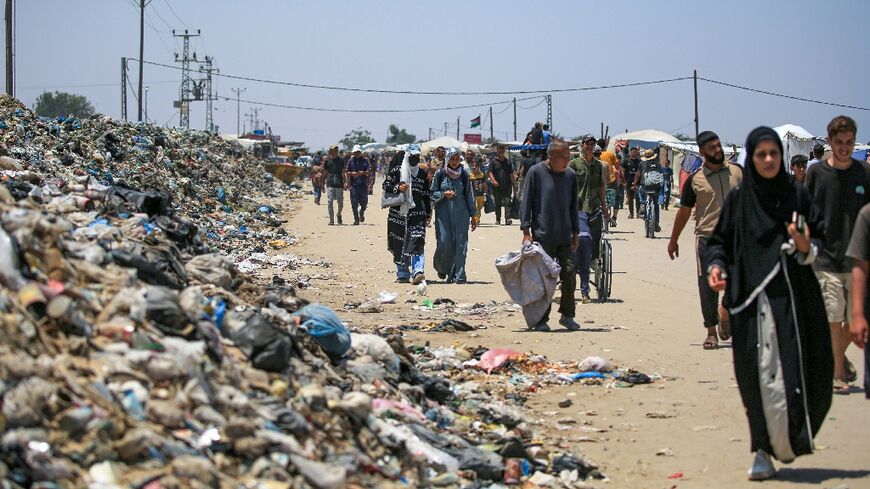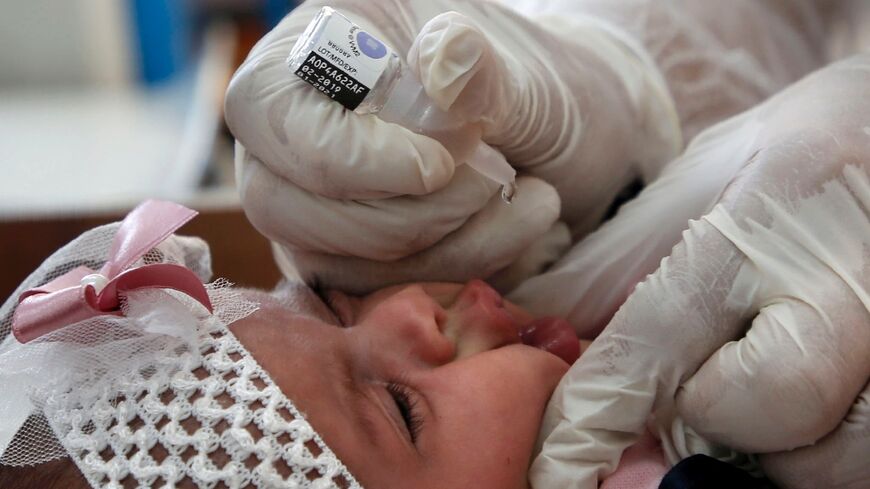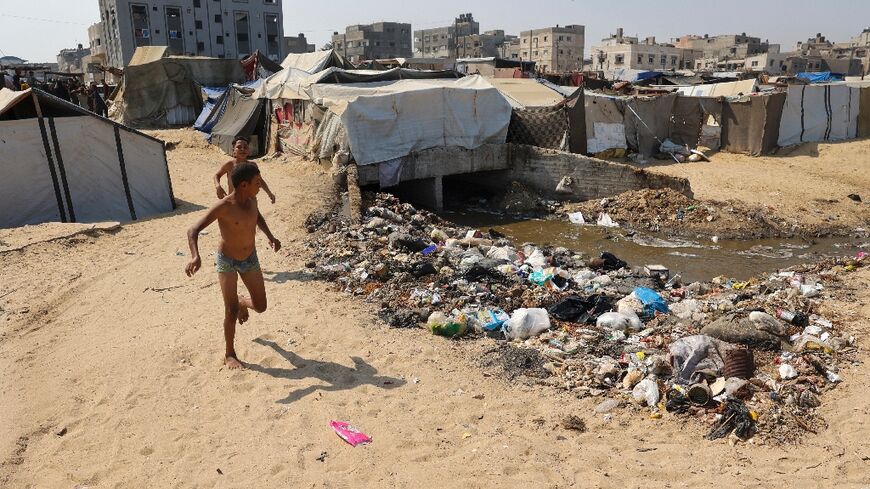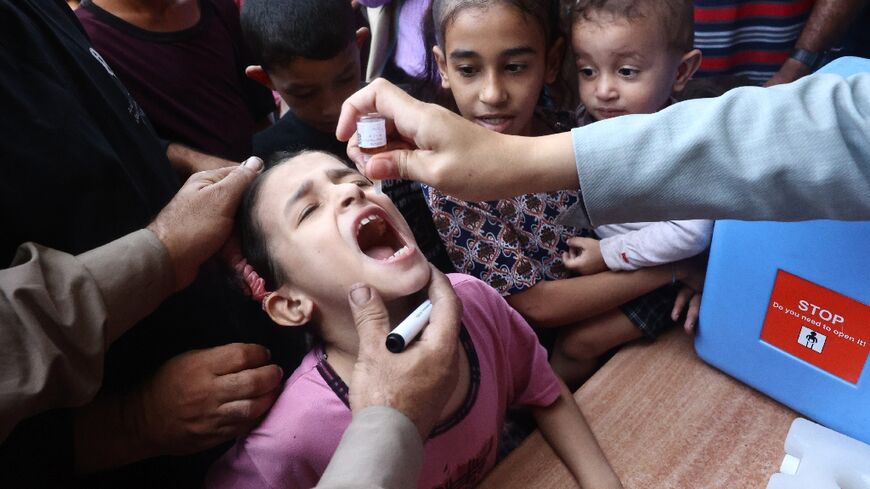Poliovirus detected in Gaza sewage: Gaza, Israel health ministries
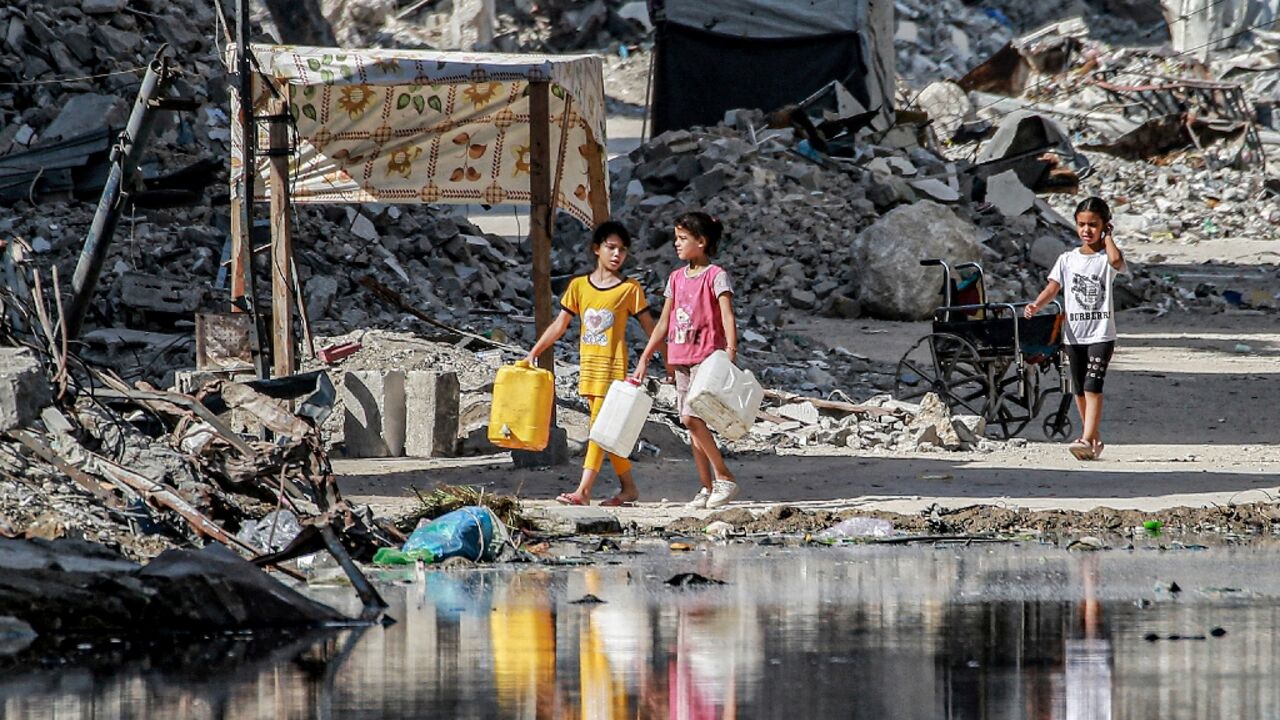
The poliovirus has been found in sewage samples from war-torn Gaza, the health ministries in the Hamas-run territory and Israel said Thursday.
The Gaza ministry said thousands of people living in crowded displaced persons' camps were now at risk of contracting the highly infectious disease that can cause deformities and paralysis.
UN agencies have been campaigning for four decades to eradicate polio, most often spread through sewage and contaminated water, but there has been a resurgence in recent years in Afghanistan and Pakistan and some isolated cases in Nigeria.
The Gaza ministry said tests carried out with the UN children's agency, UNICEF, "showed the presence of poliovirus" in the territory that has endured a devastating Israeli military offensive since the October 7 Hamas attacks.
The Israeli health ministry said poliovirus type 2 was detected in Gaza sewage samples tested in an Israeli laboratory. It said the World Health Organization had made similar findings.
"The presence of poliovirus in waste water that collects and flows between displacement camp tents and in inhabited areas because of the destruction of infrastructure marks a new health disaster," the Gaza ministry said.
It highlighted "severe overcrowding" and "scarce water" that is becoming contaminated with sewage and the accumulation of rubbish. The ministry said Israel's refusal to let hygiene supplies into Gaza "creates a suitable environment for the spread of different diseases".
"The detection of poliovirus in waste water threatens a real health disaster and places thousands of people at risk of contracting polio."
The ministry called for a halt to the Israeli offensive so that safe water can be brought in and sewage treatment can be restarted.
Authorities in the central Gaza town of Deir el-Balah said this week that waste water treatment stations had been shut down because of a lack of fuel.
They warned that roads "will be flooded by waste water" and that 700,000 civilians, most of them displaced, would be put at risk of catching sewage-borne diseases.
Israel's health ministry said the samples "raise concerns about the presence of the virus in this region".
It added that Israeli health authorities were "monitoring and evaluating necessary steps to prevent the risk of disease in Israel".


